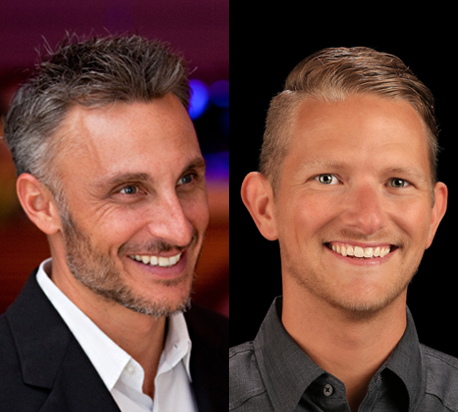Tullian Tchividjian & Zachary Hicks
// Author & Pastor of Worship > *Web-Only*TULLIAN TCHIVIDJIAN & ZACHARY HICKS are based at Coral Ridge Presbyterian Church in Fort Lauderdale, Florida. Tullian Tchividjian is the Senior Pastor and Zachary Hicks is the Pastor of Worship. Tullian is a grandson of global evangelists Billy and Ruth Graham, a contributing editor to Leadership Journal, Founder of Liberate, and world conference speaker. His book “Jesus + Nothing = Everything” (2011) won Christianity Today’s Book of the Year in 2012, and “One Way Love: Inexhaustible Grace for an Exhausted World” (2013) is available from David C. Cook Publishers. Zachary is a musician and singer-songwriter who also keeps a blog on the themes of Worship, Church, Theology, and Culture. His albums “The Glad Sound” (2009), and “Without Our Aid” (2011) are both independently released and available from ZacHicks.com.
Websites: www.crpc.org and www.liberate.org
Photo: Coral Ridge Presbyterian Church
Interview:
When we look at what the Bible has to say about our being transformed – specifically in our capacities of love and forgiveness – we’re convinced that one thing, and one thing only, can shoulder that job description: the Gospel. What we mean by that is when we are left to ourselves, we can’t change. Nor can others, including their art and artifacts, change us. So, technically speaking, art and music cannot transform us. God didn’t design them to do so. Art and music cannot cause our growth in love and forgiveness.
Only the good news of God’s justifying grace for train-wrecked sinners can pack that kind of punch. I can only truly love others when I’ve first been overwhelmed by a satisfying Love from outside myself [1 John 4:19]. I can only truly forgive when I grasp just how forgiven I am because of what Jesus did on the cross for me [Ephesians 4:32]. Moving further, then, all of this means that my capacity to love and forgive grows proportionately with my understanding and reception of God’s love and forgiveness for me. The more deeply I get God’s radical grace, the more widely I am able to cast love and forgiveness.
Yet this is where art and music do step in. In as much as art and music end up doing the two-fold work of helping diagnose my sinfulness and brokenness, and brokering the declaration of the Cure in Jesus Christ, they actually can accompany the Gospel’s transformation of our lives. Hear us out. This isn’t a plea for “Christian art”. It’s actually much bigger than that. Many of the great works of art and music, whether they are conscious of it or not, end up doing these types of things – especially diagnosing brokenness. One great example of this is art historian Dan Siedell’s discussion of Edvard Munch’s “The Scream”. A lot of art and music painfully draws us to the end of ourselves, priming us for the transformative, restorative grace of the Gospel of Jesus Christ.
We could pick many things, but what we would want to say more than anything is that the best art always has a way of carrying with it a sense of realism. Realism doesn’t seem like a positive value, but when people hear a message that cuts through the layers of fakeness, when we are stripped of our false fronts and masks, when we are able to see ourselves for who we really are, this is the first and necessary step toward positive healing and change. Time and again, we’ve seen great art broker that cathartic moment of realism and honesty. The indie album “Winners Never Quit” (2000) by Pedro The Lion did that at a critical time in my life.
My creative life as a songwriter, recording artist, arranger, and liturgist has often been the arena in which the values I had developed “up there” are either confirmed or challenged “down here”. I have found that the creative process forces a kind of grounding upon the artist where high-level values must reckon with the real world – concepts are concretized in raw material. My art-making has often been the process through which I have discovered whether those values truly have traction in the world God made, and therefore whether they work and are indeed true.
“My capacity to love and forgive grows proportionately with my understanding and reception of God’s love and forgiveness for me.”
– Tullian Tchividjian & Zachary Hicks, Author & Pastor of Worship


